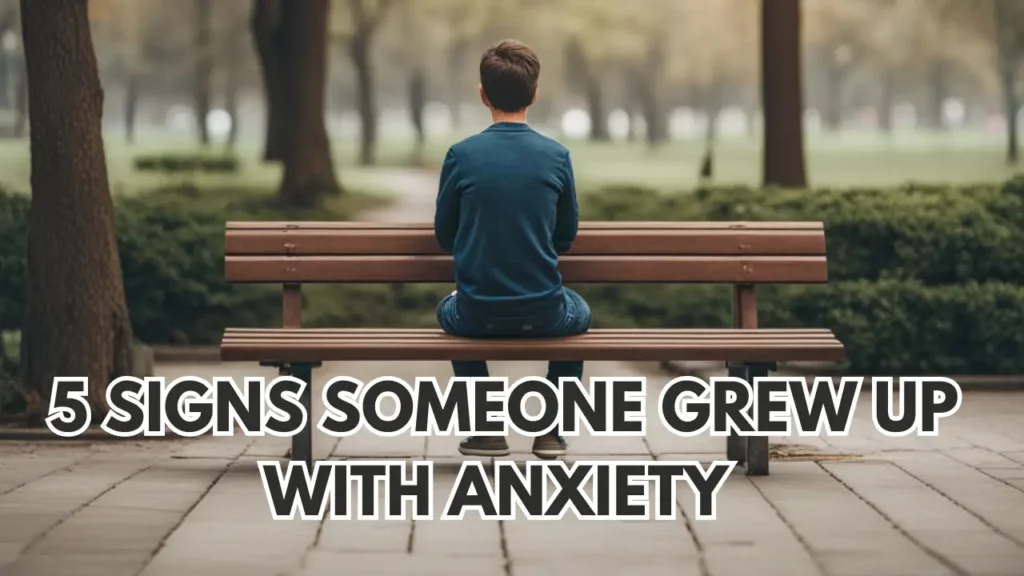Anxiety is one of the most common and debilitating mental conditions a person can face. According to the National Alliance on Mental Illness, nineteen percent of Americans deal with anxiety disorders, including seven percent of children between the ages of 3 and 17.
Growing up with anxiety can be especially difficult as it impacts nearly every part of a child’s development. If someone you know struggles with self-confidence, consistently low energy, and another less well-known problem, they may have grown up with an anxiety disorder.
1. They Lack Confidence
For someone that struggles with an anxiety disorder, self-confidence can be incredibly difficult to develop. Anxiety disorders, such as generalized anxiety disorder (GAD) and social anxiety disorder, can have a profoundly negative effect on the way someone perceives themselves.
There are several reasons for this. Firstly, someone who suffers from anxiety may focus on the negative side of life to their detriment.
By doing so, they may struggle to build their self-confidence as they’re more likely to focus on their mistakes rather than their successes.
Anxiety disorders can also cause a vicious cycle. If someone lacks self-confidence, they may be unable to motivate themselves to take part in new activities, such as a sport or job, even if these activities could boost their self-confidence.
2. They Have Difficulty Relaxing
One of the most common symptoms of all forms of anxiety is a kind of restlessness. However, this restlessness is much more intense than, say, a sugar rush.
People who live with anxiety disorders struggle with excessive worrying about a host of topics that they struggle to control. This worry manifests even if there’s nothing specific to be concerned about, which separates anxiety from common stress.
This worry has several physical side effects, and difficulty relaxing is one of the most damaging. Imagine if you felt like you were going to be shot, but you didn’t know what or when.
You would always feel on edge, making meaningful rest hard to come by. This is similar to what someone who grew up with anxiety goes through daily.

3. Consistently Low Energy
Low energy is another problem caused by anxiety. As you can see from our last point, anxiety disorders can be exhausting. If you cannot get meaningful rest, you’ll unlikely have much energy.
This lack of energy makes everything else in the sufferer’s life harder. In particular, sleep can be a struggle for someone who grew up with anxiety.
For example, research from the journal Dialogues in Clinical Neuroscience notes that between 24 and 36 percent of people with insomnia suffered from an anxiety disorder.
Insomnia makes it incredibly hard to get good sleep, further exacerbating the low energy levels associated with anxiety.
4. Ruminating on Small Details
Ruminating is another common symptom of anxiety; however, it’s also one of the most difficult to recognize from the outside.
According to the OCD and Anxiety Center, rumination is defined as engaging in a repetitive negative thought process that loops continuously in the mind without end or completion.
For someone with anxiety, certain thought patterns can be like a whirlpool, able to suck them in and trap them for sometimes hours at a time.
Rumination can be devastating for someone with anxiety. If they become trapped in these thoughts, someone with anxiety may feel more anxious and depressed as they continue focusing on those feelings.
Do you notice any of these signs in yourself? Anxiety is the most common mental health issue in the USA, and there are many fantastic places to find help.
We recommend onlinetherapy.com, with many qualified therapists who can help you take the first steps to overcome anxiety. Click the link in the description to learn more.
5. They Need Constant Reassurance
Do you suspect someone you know has or grew up with an anxiety disorder? One of the most public symptoms of any anxiety disorder is excessive reassurance seeking.
As defined by Verywell Mind, this is a compulsive act done in hopes of reducing the anxiety associated with an obsession. For example, if someone with anxiety is driving, they may constantly check and adjust their car’s mirrors more than is necessary, needing reassurance about safety.
Death and health are common topics for someone with an anxiety disorder. Reassurance seeking is harmful in several ways. It can strain relationships, the sufferer has to validate their fears, and lead to avoidance of places, people, and things associated with their anxiety. These problems are why seeking treatment for an anxiety disorder is so vital if the sufferer is to live a better life.




